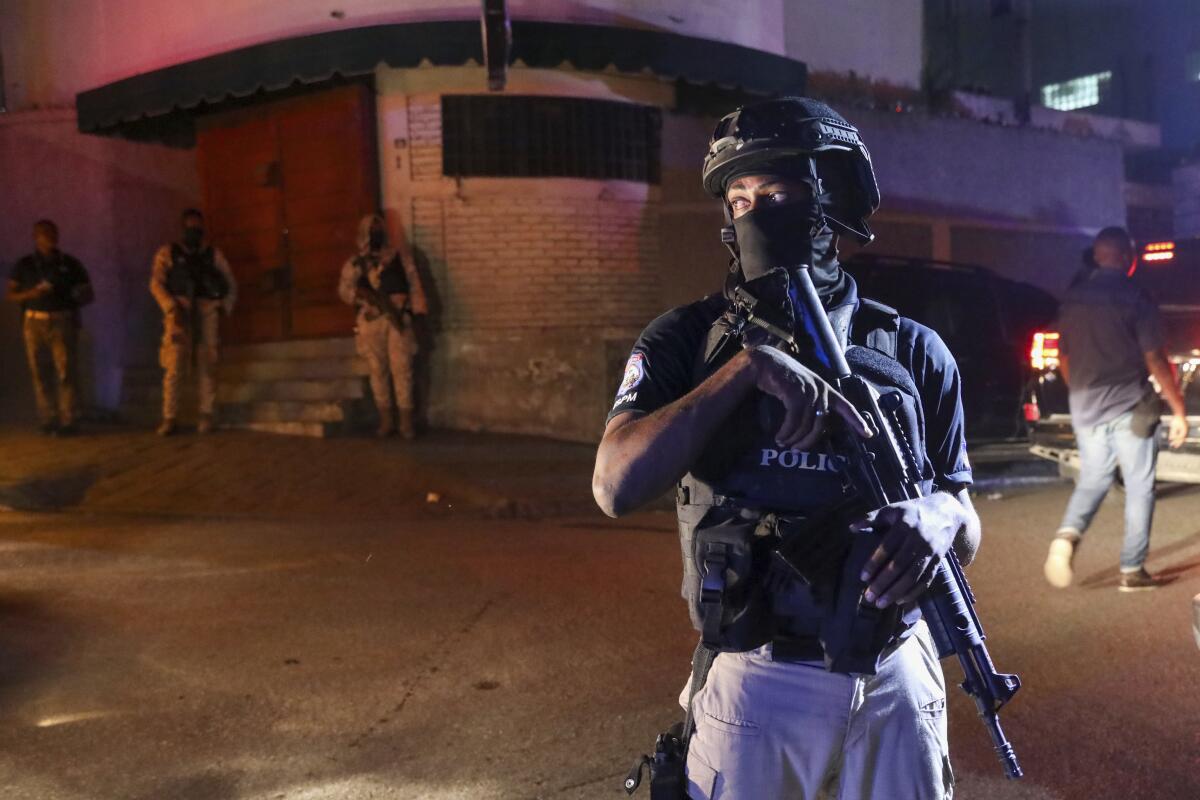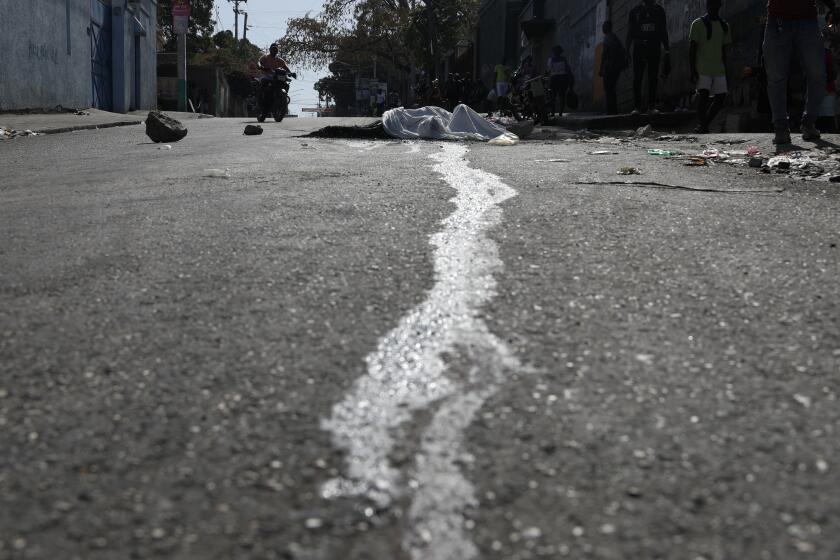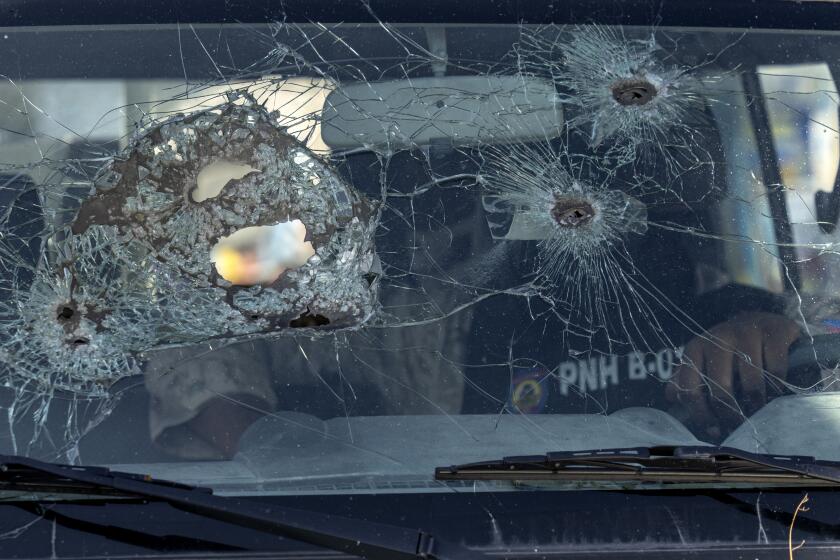Gang violence in Haiti has displaced nearly 580,000 people, a new U.N. report says

- Share via
PORT-AU-PRINCE, Haiti — Surging violence in Haiti from clashes between security forces and armed gangs since March has displaced nearly 580,000 people, according to a report from the U.N. migration agency, a sobering figure that underscores the magnitude of the Caribbean nation’s crisis.
Haiti has long faced unrest, but at the end of February gangs unleashed coordinated attacks, with gunmen taking control of police stations, opening fire on the main international airport — which remained closed for nearly three months — and storming Haiti’s two biggest prisons.
A report released Tuesday by the International Organization for Migration said the displacement of more than half a million is mainly due to people fleeing the capital of Port-au-Prince for other provinces, which lack the resources to support them.
As gangs rampage through Haiti’s capital, more than 33,000 people have fled in 13 days, report finds
U.N. officials say more than 33,000 people have fled Haiti’s capital in a span of nearly two weeks as gangs continue to pillage homes and attack state institutions.
In March, the agency reported more than 362,000 internally displaced people in Haiti. Since then, the violence has more than doubled the number of internally displaced in the southern region — already ravaged by a 2021 earthquake — from 116,000 to 270,000.
“Nearly all those internally displaced are currently hosted by communities already struggling with overburdened social services and poor infrastructure, raising further concerns about tensions with the potential to spark further violence,” the report said.
With more than 2,500 people killed or injured across Haiti in the first three months of the year, Haiti’s National Police, understaffed and overwhelmed by gangs with powerful arsenals, has been unable to bring the situation under control.
Marie Jean, 49, and her two children were displaced from their Port-au-Prince home after her husband was killed by a gang in February. She’s now sheltering with her children at a public school.
A team of Haitian police commanders have met Kenya’s inspector general of police ahead of a planned deployment to the violence-hit Caribbean country expected to take place by the end of June
“I lived in a comfortable home that my husband worked hard to build,” Jean told the Associated Press. “Now I’m living in a situation that’s inhuman.”
Juste Dorvile, 39, is also staying at a public school with her 12-year-old daughter and boyfriend as gunshots are heard constantly in the area. “Everyday we’re hoping that we survive,” she said.
With the gangs in control of at least 80% of Port-au-Prince and key roads leading to the rest of the country, many are living in makeshift shelters, including schools and learning institutions that are now hosting more than 60,000 people.
The gangs have also been charging fees for those wanting to use the highways or blackmailing drivers to get their hijacked trucks back on the roads, where police presence is scarce.
Garry Conille previously served as prime minister of Haiti from October 2011 to May 2012 under then-President Michel Martelly.
Haiti’s new acting prime minister, Garry Conille, who was appointed last month along with a Cabinet, attended a ceremony Tuesday where over 400 officers graduated from the police academy, with the expectation that they will help curb gang violence in Haiti. He reminded the graduates that the people count on their dedication to combat insecurity.
“You need to know that you are not alone,” Conille said. “You are the hope of the population at this crucial moment in our history.”
Violence is also on the rise outside Haiti’s capital. Last week, armed gangs attacked families in Terre-Neuve, a village in northern Haiti, forcing more than 1,000 people to flee their homes to safer areas.
Associated Press writers Sanon and Murphy Marcos reported from Port-au- Prince and San Juan, Puerto Rico, respectively.
More to Read
Sign up for Essential California
The most important California stories and recommendations in your inbox every morning.
You may occasionally receive promotional content from the Los Angeles Times.













